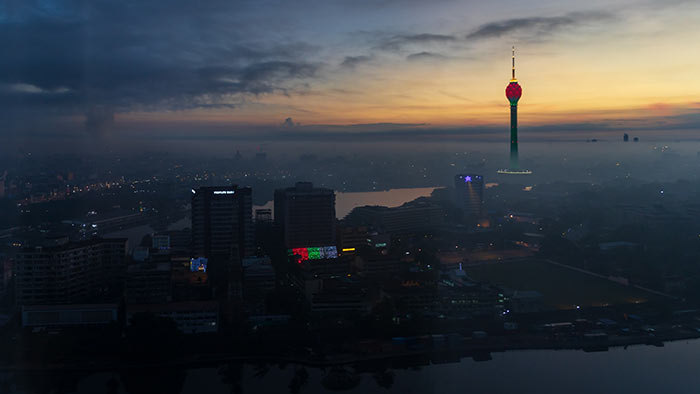Sri Lanka flags return to growth, protesters demand tax cuts

Photo credits: unsplash
Sri Lanka’s economy is expected to grow again from the end of this year and the government hopes the country will emerge from an economic crisis by 2026, the president said on Wednesday, as hundreds protested a recent rise in taxes amid high inflation.
The island of 22 million has been battling its worst economic turmoil since independence from Britain in 1948, which has forced it to default on loans and seek a bailout of $2.9 billion from the International Monetary Fund (IMF).
Sri Lanka, which needs to raise taxes to boost government revenue to 11.3% of GDP this year from 8.3% in 2022 in order to get the IMF funds, introduced new income taxes in January for professionals, ranging from 12.5% to more than 36%.
President Ranil Wickremesinghe, who took office in July after Gotabaya Rajapaksa was ousted in a popular uprising, told parliament he could see a way out of the troubles as he worked through economic reforms to seal the deal with the IMF.
“It is difficult for all sections of society to survive,” he said. “However, if we endure this hardship for another five to six months, we can reach a solution.”
He added, “We can achieve economic growth” by the end of 2023 and “can rise out of bankruptcy by 2026” or even earlier, if all political parties supported government initiatives such as raising taxes.
Last month Wickremesinghe said the economy could contract by 3.5% or 4.0% for the full year after having shrunk 11% last year.
His speech to lawmakers did little to deter a lunch-hour protest by salaried workers.
Public workers shouting slogans, with some carrying black flags and signs reading “Yes to reasonable tax”, stepped out of government buildings to protest. Black flags were also tied to railings outside Colombo’s main hospital.
Doctors and university teachers working at state-run hospitals and universities started a 24-hour strike on Wednesday, warning of longer strikes.
“We have taken to the streets to tell this government that they must immediately and unconditionally withdraw these unfair taxes,” said Ranjan Jayalal of the United Trade Union Alliance that represents workers of the state-run Ceylon Electricity Board.
“If they don’t do that, we will make this government kneel and force them to cancel this tax bill.”
Wickremesinghe said Sri Lanka’s foreign reserves now at $500 million, after having fallen to zero last year.
Total reserves reached $2.1 billion at the end of January, the highest in about a year, though they included a $1.5-billion swap from People’s Bank of China that cannot be tapped yet, as core reserves are insufficient for three months of imports.
Wickremesinghe said Sri Lanka was working with China, its largest bilateral lender, to seek financing assurances supporting a debt restructuring to finalise an IMF programme.
“We have received positive responses from all parties,” he added. “We are now working towards unifying the approaches of other countries and that of China.”
(Reuters)
Latest Headlines in Sri Lanka
- Police open fire on fleeing vehicle, arrest couple with cannabis in Hokandara February 24, 2025
- Petitions against Deshabandu’s IGP appointment fixed for hearing February 24, 2025
- Sri Lanka’s Defence Secretary orders immediate arrest of military deserters February 24, 2025
- PM Rejects Nalin Hewage’s remarks on MP Rohini Kavirathna February 23, 2025
- Sri Lanka President: No threat to national security, gang wars under investigation February 23, 2025


